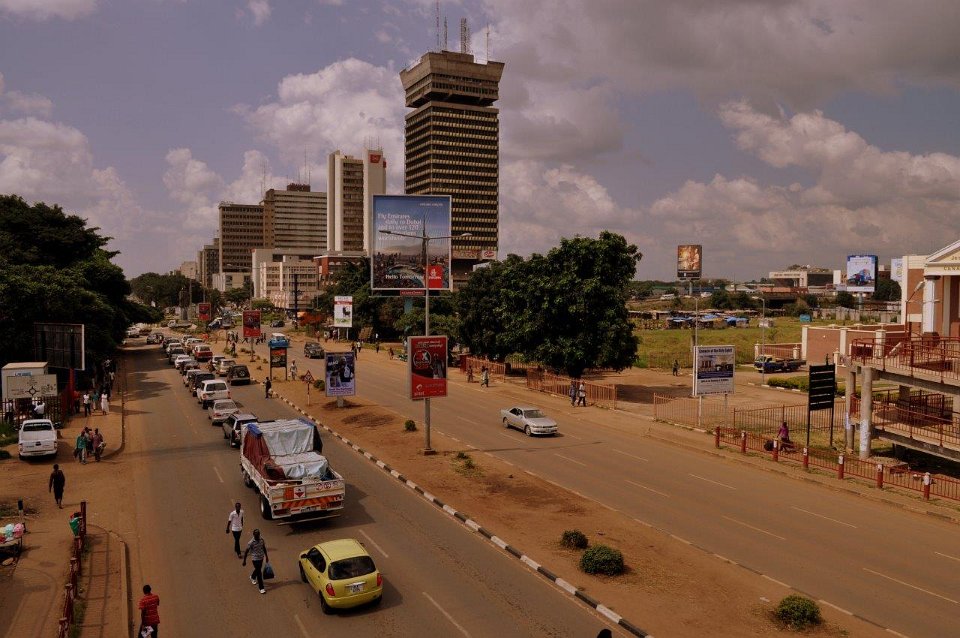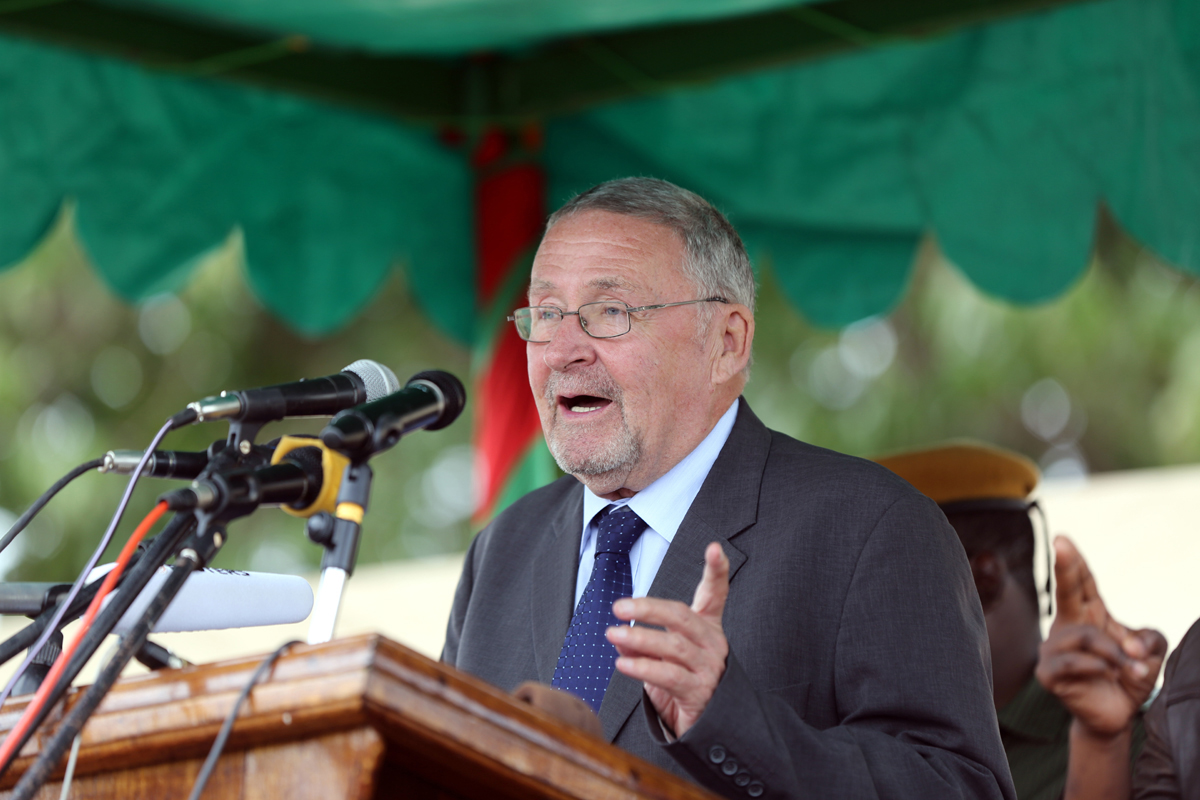 This article piggybacks off an earlier piece titled “The definition of GDP does not include employment rates” in which I responded to critics of Zambia’s impressive year-over-year GDP growth. These critics discounted Zambia’s GDP growth because of the countries high unemployment rate. The point I hoped to get across was that, while an improved employment rate is expected as an economy grows, the growth of one is not commensurate with an equal growth rate of the other. (Photo courtesy of Zambiatourism.com)
This article piggybacks off an earlier piece titled “The definition of GDP does not include employment rates” in which I responded to critics of Zambia’s impressive year-over-year GDP growth. These critics discounted Zambia’s GDP growth because of the countries high unemployment rate. The point I hoped to get across was that, while an improved employment rate is expected as an economy grows, the growth of one is not commensurate with an equal growth rate of the other. (Photo courtesy of Zambiatourism.com)

source: The Economist
My opponent’s argument was not completely flawed assuming the government has the money for all such projects and funding. Now we know that Zambia does not have unlimited resources. The question is should the government be an investment partner, facilitator or be completely responsible for the cost of all infrastructural development? Should the government actually put up the money into most, if not all capital investment? If you answered yes to the last question, then the next task should be to determine where that money would come from. It will either come from a large taxable base of employees and businesses, or it will be borrowed or granted. We know, in the case of Zambia, that the money will not come from a large taxable base of employees and business, and we know that a country cannot perpetually depend on grants or borrowing. I think we can all agree that Zambia does not have unlimited resources or “deep pockets” to pay for every capital intensive project. So let’s look at the Zambian government as a facilitator and investment partner.
Zambian Government as the Facilitator – creating an enabling environment
A good place to assess or monitor Zambia’s efforts at creating an enabling environment is to look at the World Bank/IFC annual Ease of Doing Business rankings. Ease of doing business ranks economies from 1 to 189, with first place being the best. The index averages the country’s percentile rankings on the following 10 topics:
(1)Starting a business, (2) Dealing with construction permits, (3) Getting Electricity,
(4) Registering Property, (5) Getting Credit, (6) Protecting Investors, (7) Paying Taxes, (8)Trading Across Borders, (9) Enforcing Contracts, and (10) Resolving Insolvency.
Doing Business Ranking: 2013-2014
|
2013 |
2014 |
Change |
|
| EASE OF DOING BUSINESS RANK |
90 |
83 |
+7 |
| Starting a business |
70 |
45 |
+25 |
| Dealing with construction permits |
65 |
57 |
+8 |
| Getting Electricity |
152 |
152 |
No change |
| Registering Property |
98 |
102 |
-4 |
| Getting Credit |
11 |
13 |
-2 |
| Protecting Investors |
80 |
80 |
No change |
| Paying Taxes |
68 |
68 |
No change |
| Trading Across Borders |
163 |
163 |
No change |
| Enforcing Contracts |
114 |
120 |
-6 |
| Resolving Insolvency |
100 |
73 |
+27 |
More information can be found from the World Banks section on Doing Business rankings at: www.doingbusiness.org.
The rankings above are dependent on two factors, namely the individual country’s performance in a particular category and how well other countries are also performing, meaning that Zambia might show improvement in a specific area but might not improve in rankings due to greater improvement by another country. However, when you look deeper into the report available at www.doingbusiness.org, you will see which areas showed improvement or a lack there of. Generally, Zambia has showed an improvement in its overall Ease of Doing Business ranking.
Multi-Facility Economic Zones – creating an enabling environment
In an effort to provide an enabling environment from an infrastructure development perspective, the Zambian government embarked on the creation of Multi-facility economic zones (MFEZ). These economic zones are industrial zones for both export-oriented and domestic-oriented industries. The zones are strategically located and provide the necessary infrastructure to enable an organization to set up operations in the shortest possible timeframe. The Zambian government expects to attract and facilitate establishment of world-class enterprises into the zone (s). The success of these zones is crucial to Zambia’s goal of growing its manufacturing capability.
Zambian Government as the Investment Partner – creating an enabling environment
Public-Private Partnerships (PPP) including Build-Operate-Transfer (BOT), are examples of ways that the Zambian government is able to partner with private sector to expedite infrastructural development. PPP facilitates the combination of the strengths of private and public sectors. These partnerships allow implementation of public construction projects within a shorter timeframe, reduction of investment and operating expenses. PPP is a broad term, which refers to contractual partnerships between the public and private sector agencies, specially targeted towards financing, designing, implementing, and operating infrastructure. Build Operate Transfer (BOT) and similar arrangements are a kind of specialized concession in which a private firm or consortium finances and develops a new infrastructure project or a major component according to the governments goals. Under BOTs, the private partner provides the capital required to Build the new facility, Operate and Maintain it for the contract period and then return the facility to Government as per agreed terms. Importantly, the private operator now owns the assets for a period set by contract. This period is sufficient to allow the developer time to recover investment costs through user charges. Other similar arrangements include:
- Design-Build (DB): Where Private sector designs and constructs at a fixed price and transfers the facility.
- Build-Transfer-Operate (BTO): Where Private sector designs and builds the facility. The transfer to the public owner takes place at the conclusion of construction. The private firm is given the right to operate and get the return on investment for a defined period.
- Build-Own-Operate (BOO): A contractual arrangement whereby a Developer is authorized to finance, construct, own, operate and maintain an Infrastructure or Development facility from which the Developer is allowed to recover his total investment by collecting user levies from facility users. Transfer of the facility to the Government, Government Agency or the Local Authority is not envisaged in this structure.
- Design-Build-Operate (DBO): Where the ownership is involved in private hands and a single contract is let out for design construction and operation of the infrastructure project.
- Build-Operate-Transfer (BOT): Annuity/Shadow User Charge – In this BOT Arrangement, private partner does not collect any charges from the users. His return on total investment is paid to him by public authority through annual payments (annuity) for which he bids. Other option is that the private developer gets paid based on the usage of the created facility.
Zambia has engaged in different kinds of PPP arrangements and continues to seek out partnerships of this kind. The following are sectors in which Zambia has looked for PPP arrangements over the last several years:
Roads
Lusaka-Ndola: BOT/Tolling
Kitwe Chingola: BOT/Tolling
Chingola-Jimbe Border: BOT/Tolling
Lusaka-Livingstone: BOT/Tolling
Kafue-Chirunda: BOT/Tolling
Rails
Zambia Railways Concession: Concession
Border Post Support Infrastructure
Kasumbalesa: BOT
Kazungula: BOT
Nakonde: BOT
Mwami: BOT
Jimbe: BOT
Kipushi: BOT
Energy
Kafue Gorge Lower: BOT
Itezhi-Tezhi Hydro:
Upgrade of Indeni and TAZAMA
Estate and Housing
Government Offices Complex: Maintenance Contract
UNZA Hostels: BOT
UNZA Ultra modern business park: BOT
Luburma Market: BOT
4000 Housing Unit each in Livingstone, Lusaka and Ndola: BOOT
Agriculture
Nansanga Farm Block: BOT
Irrigation Development Project:
Grain Marketing:
Source: http://zm2.mofcom.gov.cn/article/supplydemandofchina/cooperation/201012/20101207284765.shtml
The Zambian governments current efforts are not perfect, sufficient or comprehensive. I believe that the government can do much more, especially in the area of support and incentives for Micro, Small and Medium sized companies, however it’s appropriate to acknowledge current efforts and also praise successes and achievements.
Robert Sichinga Jnr. MBA, MsHCA
Robert Sichinga is originally from Zambia and is currently based in California.
He is committed to promoting Zambia’s investment opportunities. His primary interest is in publicizing, promoting, and developing commercial and industrial connections between companies in the United States of America and Zambia.
Robert Sichinga is a contributor to The Black Business News International edition, Zambia Investor magazine of South Africa, and Africa Speaks 4 Africa. He has also served on the board of several African-Diaspora focused organizations.
Photo courtesy of Zambia Tourism




